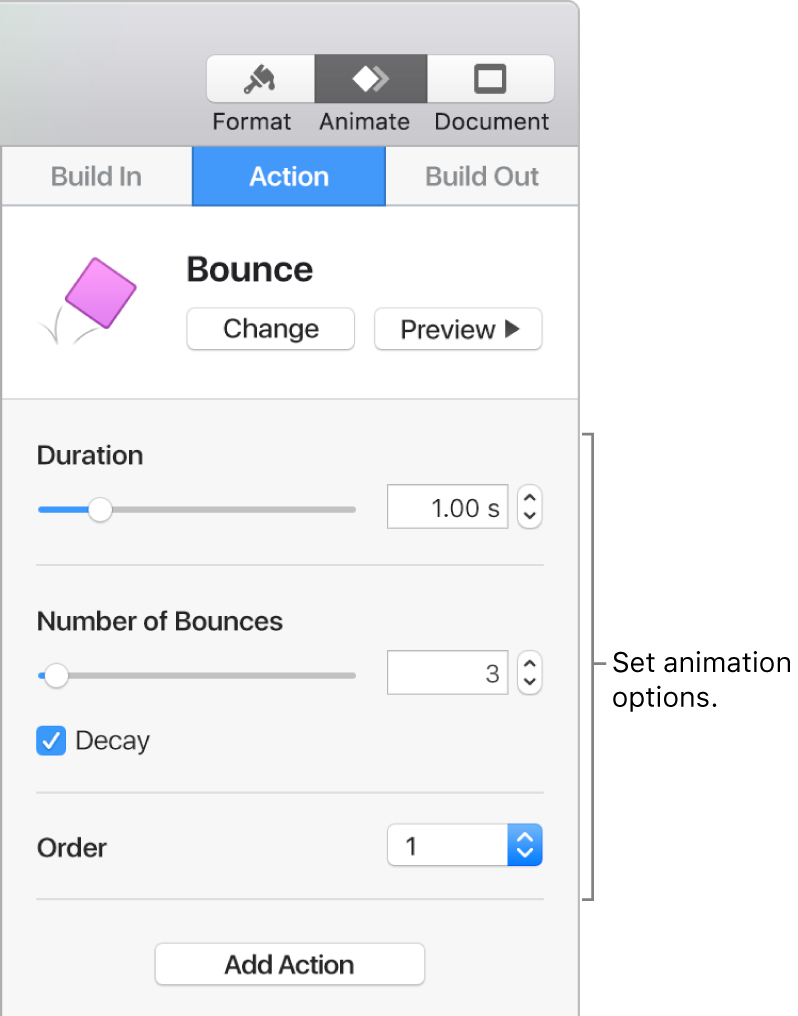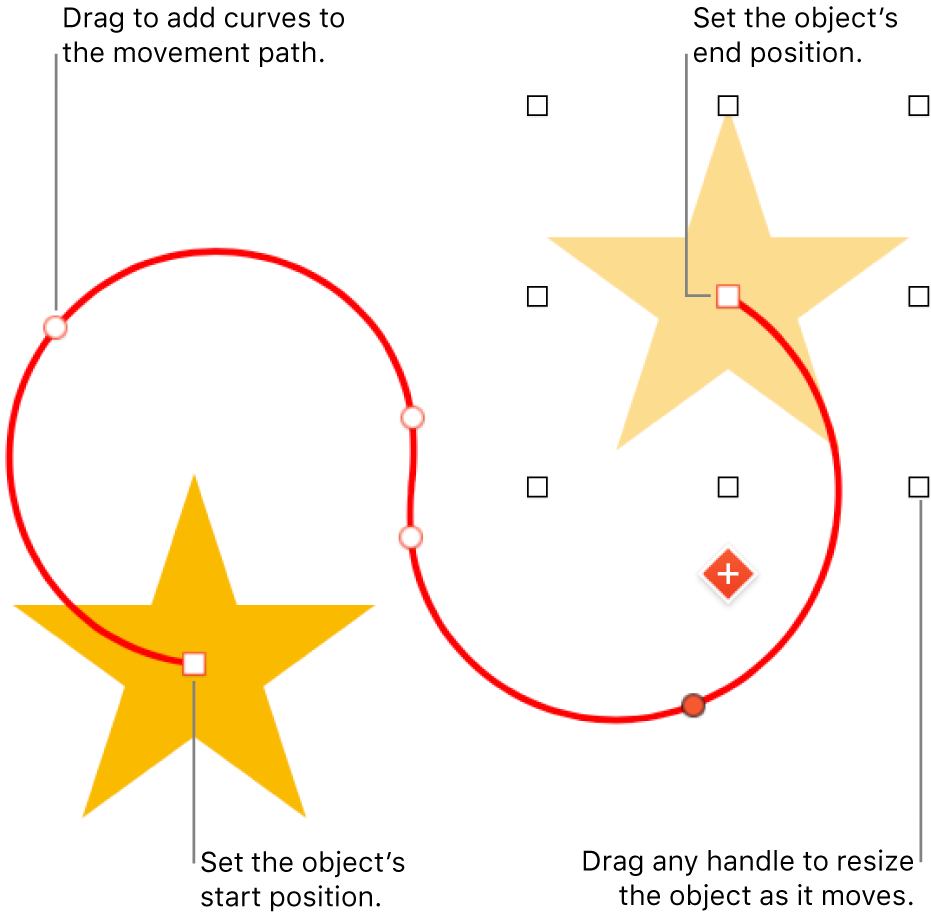
Animate objects on a slide in Keynote on Mac
You can use action builds to animate an object on a slide. For example, you can have an object move from one side of the slide to the other, make it become transparent, make it blink or bounce for emphasis, and more.
You can apply multiple action builds to an object and specify their order to create interesting effects. For example, you can have an object shrink as it moves across the slide, then disappear.
Animate an object on a slide
On the slide, click to select the object you want to animate.
In the Animate
 sidebar, click the Action tab.
sidebar, click the Action tab.Click Add an Effect, then choose an animation.
To set animation options, such as the duration and direction of the animation, use the controls that appear.

These build types require special steps:
Opacity: To specify how transparent the object is at the end of the animation, drag the Opacity slider. If you want the object to end up invisible, drag the slider all the way to the left.
Rotate: To change the direction of rotation, click the Clockwise pop-up menu. To choose the angle and number of rotations, enter values in the Angle and Rotations fields.
Scale: To set how big the object is at the end of the animation, drag the Scale slider. You can also drag a white square around the transparent ghost object on the slide to set the object’s final size. (If you can’t see the ghost, click the object, then click the red diamond below it.)
Move: See "Create a motion path” below.
To see how the animation looks, click Preview.
To apply another action build to the object, click the red diamond (if you see one) below the object on the slide, or click Add Action in the sidebar, then choose another build.
Create a motion path
You can create a motion path for an object so that it moves around the slide.
On the slide, click to select the object you want to animate.
In the Animate
 sidebar, click the Action tab.
sidebar, click the Action tab.Click Add an Effect, then choose Move.
Drag the opaque object on the slide to where you want the movement to begin, then drag the transparent ghost object to where you want the movement to end.
If you can’t see the ghost object, click the object, then click the red diamond below it.
To add curves to the path, drag the white dots along the line.

To change the duration and acceleration of the animation, use the controls in the Action tab of the Animate sidebar.
To preview the animation, click Preview.
Tip: You can combine a Motion Path build with other action builds to create more complex animations. For example, to scale an object as it moves across a slide, drag any white square on the ghost object.
To move multiple objects to new positions on a slide, you can also use a Add a Magic Move transition.
Combine action builds into a single animation
You can apply two or more Basic action builds to an object, then set them to play simultaneously to create a single animation. For example, you can make an object move across a slide as it rotates, or make it rotate as it gets bigger.
Emphasis builds like Bounce or Flip can’t combine with other builds, but they can play immediately after other builds.
On the slide, click to select an object with at least two Basic action builds.
At the bottom of the Animate
 sidebar, click Build Order.
sidebar, click Build Order.In the Build Order window, drag the builds you want to combine so they’re listed consecutively.
Click to select a build to combine with the one above it, click the Start pop-up menu, then choose With Build [number].
Repeat this step for each build you want to combine with the build above it.
Remove an animation
On the slide, click to select the object with the animation you want to remove.
In the Animate
 sidebar, do any of the following:
sidebar, do any of the following:Remove all Build In, Build Out or Action animations from an object: Click the Build In, Build Out or Action tab at the top of the sidebar. Click Change, then choose None.
Remove a specific animation from an object: Click Build Order at the bottom of the sidebar. In the Build Order window, click to select the build you want to remove, then press Delete on your keyboard.